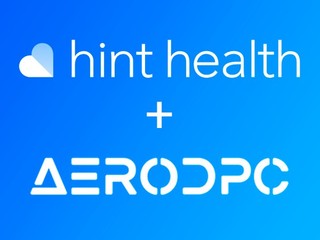
Zak Holdsworth, co-founder and CEO of Hint Health, on VatorNews podcast
Hint Health is a company dedicated to supporting the direct primary care movement
Steven Loeb and Bambi Francisco Roizen speak with Zak Holdsworth, co-founder and CEO of Hint Health, a company dedicated to supporting the direct primary care (DPC) movement.
Our goal is to understand tech breakthroughs radically changing healthcare: the way we screen, diagnose and treat conditions and measure outcomes. And whether tech is helping or hurting our well-being physically and mentally.
Highlights from the interview:
- When starting Hint Health, Holdsworth wanted to do something to fundamentally transform the US healthcare system and address the root cause problems, versus being an incremental fix. They looked at what would actually reduce costs, what would actually improve access, what would actually improve outcomes, and what would actually create a better experience for both the clinicians as well as the patients; the answer they found was direct primary care, which involves doctors that have stepped outside the insurance fee for service infrastructure, they don't accept insurance, they take a fixed monthly fee for essentially unlimited access to care.
- Holdworth is not an anti-insurance company but he is anti-insurance for paying for the majority of healthcare. There's no industry in the world where insurance isn't a pretty critical part, and insurance is a critical infrastructure in modern society, but it's really a critical infrastructure for ensuring catastrophic risks. Many healthcare encounters cost less than $100, including primary care, so he’s anti-insurance being the predominant payment and coordinator of care. Holdsworth is of the view that you should have insurance, it just should be something that's designed for catastrophic stuff and the problem with today's healthcare system is there's actually not too many options that are affordable that actually do that for you.
- If you think about a traditional primary care model, doctors see 3,000 patients, and that's one of the things that drives the 11 minutes per visit, on average, and that's one of the reasons you end up with lots of burnout. You also end up with the situation where their gross margins as a business continue to drop, because insurance carriers continue to grind you down in terms of the reimbursement. With a direct primary care model, doctors typically will reduce the patient panel size from 3,000 to around 800, which allows them to spend 30 or 40 minutes with patients. You don't have to worry about things like the reimbursement pathway for a virtual visit, because in a direct primary care model you get a fixed monthly membership fee. You end up also with a high gross margin as well, because now they don't have all the operating overheads associated with insurance, billing, adjudication, and all that.
- In the direct primary care model you're changing it from a fee for service transaction to a membership, so your incentive is to reduce the churn of your members and the way to do that is to really create as much value for them as possible in every interaction. What Hint often finds is these doctors are spending more time and that means they’re not incentivized to go break the three different things that might be going on with this patient into three different visits, which is the incentive in the fee for service model; instead, your incentive is to see the whole picture of the patient because you don't want them coming in three times, they want to deal with it once so it’s more efficient.
- In the fee for the service industry, the average revenue per patient is roughly in the $20 per month range. In a direct primary care model, the average is around $75 and so doctors are more than tripling their revenue per patient. So, if you cut your panel by three to 4x, but you increase your revenue per patient by three to 4x, you're generating roughly the same amount of money per doctor. In a direct primary care model, doctors also get the advantage of removing most if not all the unnecessary administrative overhead, so they similar or maybe slightly less revenue, but high gross margin. Also, importantly, you now have a recurring revenue stream versus a transactional revenue stream.
- If you have a patient's a hypochondriac and wants to come in every day, probably, there's a mental health problem, or some type of health issue, that needs to be addressed. This is actually a fairly common concern when doctors are looking to transition to direct primary care, and what they'll find is there will be some patients that start out calling them every day, and what will happen is the doctor will actually start to address some of the underlying mental health problems that are driving some of that behavior, either medically or otherwise, so they can actually address that core health concern. Doctors want those patients because they want to help people, and they know that they can if they're just given the time.
- HInt’s vision is to redesign the healthcare system to enable easy access to high quality, affordable care. In order to do that, you need to transform primary care, and the way to transform primary care is through a direct primary care model, which is price transparent, incentive aligned, and has lower administrative overhead. Take those three axioms and you can apply that to a specialist, imaging, cash rates for pharmacy, there's also all sorts of different places that you can take these concepts. Hint is starting with helping primary care because that is where the referral pathways come from and, from there, you can slowly but surely start to carve out more and more of the system away from the insurance fee for service status quo, but those direct care models need to be integrated with primary care. Primary care should be the heart of health care so part of our strategic vision is to help its clients expand and integrate downstream care.
Thank you to our sponsors: Advsr; a boutique M&A advisory firm. They wrote the book on startup M&A called "Magic Box Paradigm: A framework for startup acquisitions." Go to Amazon.com to get your copy. Also thanks to Stratpoint, an outsourced engineering firm and Scrubbed, an online bookkeeping firm. If you need affordable and quality engineering and bookkeeping, check them out. We highly recommend them!
Subscribe to our podcasts to get our interviews and shows as soon as they're published!

Mitos Suson
I produce Vator Events and enjoy the challenge. I am learning and growing a lot, being involved with Vator and loving every moment of it!
All author postsRelated News

